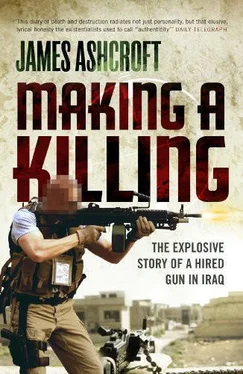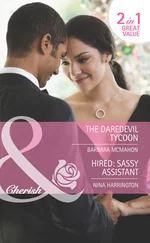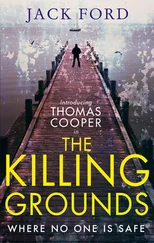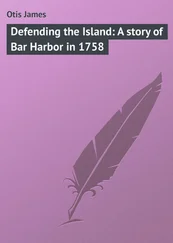Iraq was the story. Al Qaeda’s attack on the Twin Towers on 11 September 2001 was one of those defining moments in history. If the Iraq War was a direct response to 9/11◦– most US soldiers I’d met certainly believed it so◦– its implications would affect every aspect of our lives: the price of oil, peace in the Middle East, US relations with Europe, the trust gap between the people and their governments. In Britain, Italy and Spain people had marched in their millions against the war but Blair, Berlusconi and Aznar still followed Bush to Baghdad.
Why? And what next?
I’d always stayed in contact with my army mates and one morning three weeks before, while I was hurrying to catch the 8.10 into the City, the phone rang and my pulse started to race when I heard the voice of Angus McGrath on the other end of the line. Like myself, Angus was a former infantry officer in the Duke of Wellington’s Regiment, a great barrel-chested, Scots brute of a man and not famous for wasting 50p on a phone call.
He was in Baghdad working for Spartan and when he asked me if I could drop everything and be there in a week it dawned on me that my Hermès tie was choking me to death.
‘Is it going to be dangerous?’ I asked him.
‘Absolutely. You’re replacing some poor sod who got slotted two days ago.’
I glanced at Krista. She was doing a poor job pretending not to listen as she put on her make-up in the mirror. I could see her eyes in the reflection.
‘Not dangerous at all, a desk job you say?’
‘You’re joking, mate. I got contacted this morning, there’s fucking bullet holes in my windscreen.’ He paused. The penny must have dropped. ‘Is Krista in the same room as you?’
‘Yes she is, and she’s very well thanks. Count me in.’
This was the answer to our dreams. Before my late entry into law, I had done one tediously safe security job in Tanzania where I was instructing the locals in the art of guarding a cement factory. I assured Krista it would be the same in Iraq. Big money, I said, no danger. My attitude was that what Krista doesn’t know she’s not going to worry about.
I was going back into action. I spent a frantic few days running around the Army and Navy surplus stores looking for kit. I bought a couple of pistol holsters, which Angus said were hard to come by in Iraq, sand-coloured shirts and trousers, two pairs of desert boots, torches, batteries and a daysack to carry everything.
I spoke to Angus again and he told me that there had only been a handful of casualties among security men at this time, with the highest scoring killer of contractors being friendly fire from the US contingent of Coalition Forces.
The Americans themselves were taking hits on a daily basis in a conflict they could never win. Declaring a War on Terror may have played well at home on Fox News and CNN, but the very notion was a miscalculation. For every insurgent rendered inoperative, two more or five more or ten more were crossing the porous borders to fill the ranks. The same went for every civilian killed or tribesman embarrassed while being body-searched in front of his family. The next morning would see dozens more recruits to the insurgency.
It was easy to forget, and even American colonels and oilmen I knew sometimes forgot, that we had come to Iraq to oust their wicked dictator and remove his weapons of mass destruction (WMD). We were not an occupying force safeguarding the second largest oil reserves on the planet. We were rebuilding Iraq to bring security to the Iraqis.
I imagine that’s why a hefty 30 per cent of that first $87 billion reconstruction package was for security and why there were more than 15,000 private contractors in Iraq when I arrived; about 10,000 from the UK in various companies; ex-Special Forces Americans, Australians, South Africans; no French firms but a motley assortment of Frenchmen, and there was the usual bunch of adventurers who looked as if they’d stepped off the set of Apocalypse Now .
The number would double, as would the number of unarmed civilian contractors rebuilding the country. At that time, an extraordinary 100,000 people were employed in Iraq by reconstruction company KBR, a branch of the American giant Halliburton, CEO’d once upon a time by the US Vice-President Dick Cheney. War was being privatised. It made perfect sense.
Al Qaeda and radical Islamists had been banned under Saddam. Now, they were flocking into the country, praying in the mosques, intoxicating themselves with jihadi zeal and dreaming of the seventy virgins said to greet martyrs in heaven the day they die. Iraq was on the slippery slope to chaos. October had come with a welcome respite from the oven heat of a long summer and I had a feeling that with the cool the chaos would deepen.
We had armed ourselves during the two weeks I’d been in Iraq with whatever we could lay our hands on. The quest for ordnance would be ongoing throughout my eighteen months in Baghdad. In the meantime, we packed four Browning pistols and two Austrian Glocks, the latter a prestige side arm in South Africa so our Afrikaners were ecstatic. We had acquired a pair of RPD light machine guns made in Egypt, a weapon which first appeared in the Korean War in the 1950s and was carried by Fidel Castro and Che Guevara into the Cuban Revolution. We had binned the bipods to reduce the weight, chopped four inches from the butts and cut the barrels down, leaving four inches beyond the gas port to allow enough pressure to cycle the weapons. More powerful PKM machine guns had been available but due to their bulkiness in covert vehicles, and the short engagement ranges we anticipated within the urban Baghdad area, we had opted for the RPDs instead. We had tried and discarded a sorry assortment of faulty Iraqi AKs that hadn’t inspired confidence at around $100 apiece and instead acquired some Romanian and other Eastern Bloc AKs that cost up to $350 and were far tastier. Like Germans with coffee brands, you quickly become an AK connoisseur.
Iraqi munitions described perfectly the Iraqi army. It was hardly surprising the third biggest military force on the planet was overrun in three weeks. The soldiers were mainly petrified conscripts who had laid down their weapons the moment they saw the Stars and Stripes on the horizon. It wasn’t a war, as one American colonel had told me, it was a cakewalk. Having said that, I was pretty sure he hadn’t been with the frontline grunts who had watched their mates bleed and die on the long road up from Kuwait. Maybe doing a few night patrols through Sadr City would have given him a sense of reality.
Only the Republican Guard and the Fedayeen Saddam had put up a decent stand. Those who escaped the coalition offensive were the battle-hardened veterans leading the insurgency and were now generally known as the ‘fedayeen’ by Coalition Forces. There were a few foreign fighters, but the majority were home-grown Iraqis.
Seamus Hayes, our team commander, was still trying numbers on the cellphone. The American MCI network was dodgy at the best of times. It would be more than six months into the new year before the Iraqi network was up and running, to the delight of Western contractors and Iraqi insurgents both. He shook the MCI violently.
‘Piece of shit,’ he said, his gruff voice lifting the sour mood somehow. ‘I’ll try the Thuraya,’ he added, and stamped out to get the satellite phone. He would need a clear view of the sky for it to work.
Les Trevellick pointed at the exit and made his way out to join Seamus. I listened as his footsteps receded.
I took one more look around before joining the rest of the group outside.
It was surprisingly cool. The air tasted ancient and dusty. I could hear the sound of birds over the hum of traffic on the main highway. While Seamus was abusing the satellite phone, I was absently wondering what to prepare for dinner that night. It was my turn to cook.
Читать дальше












